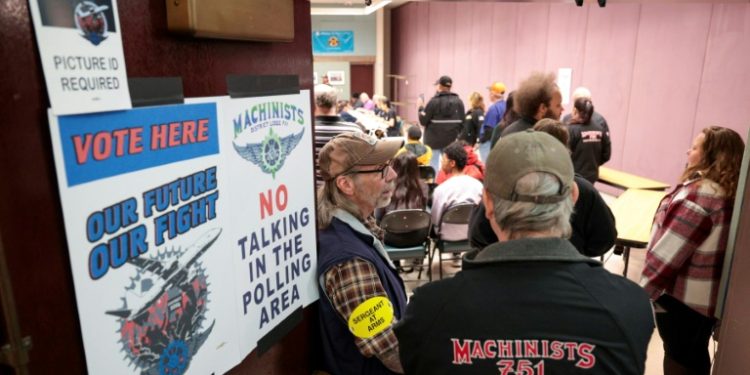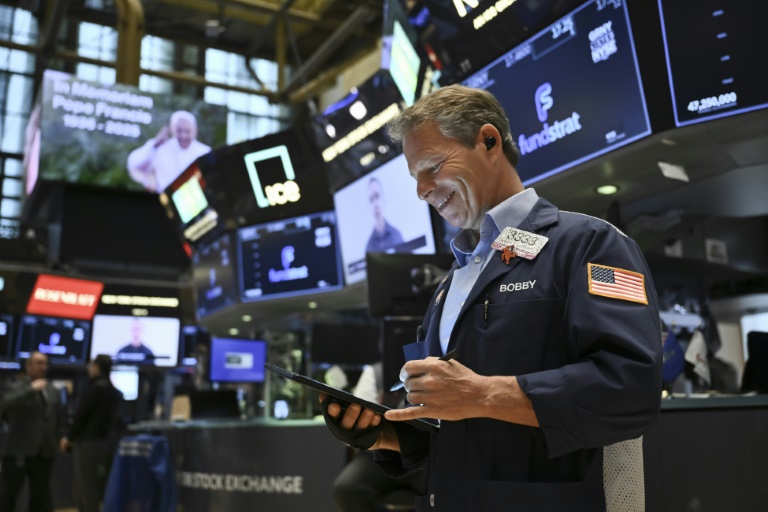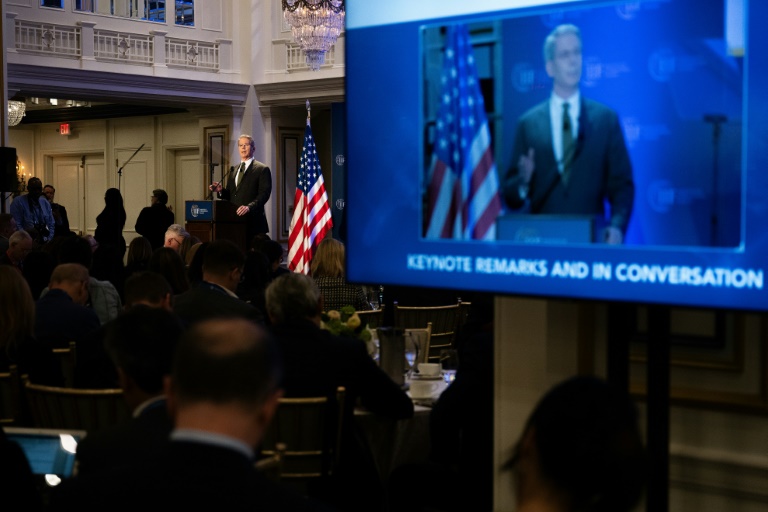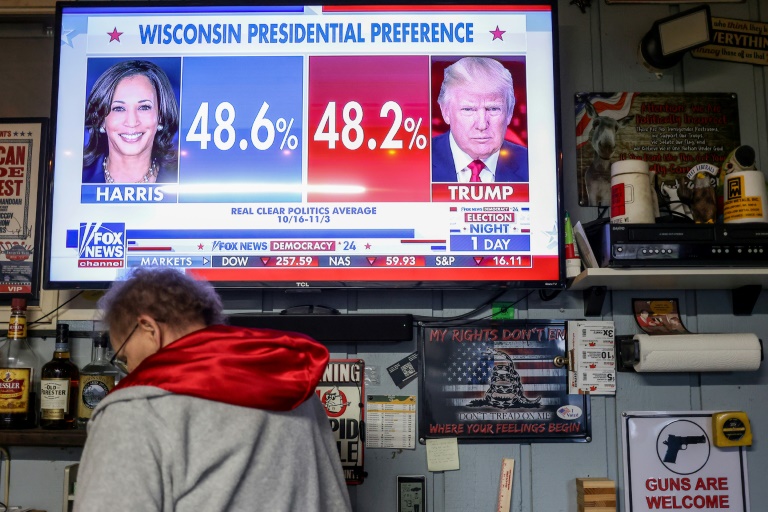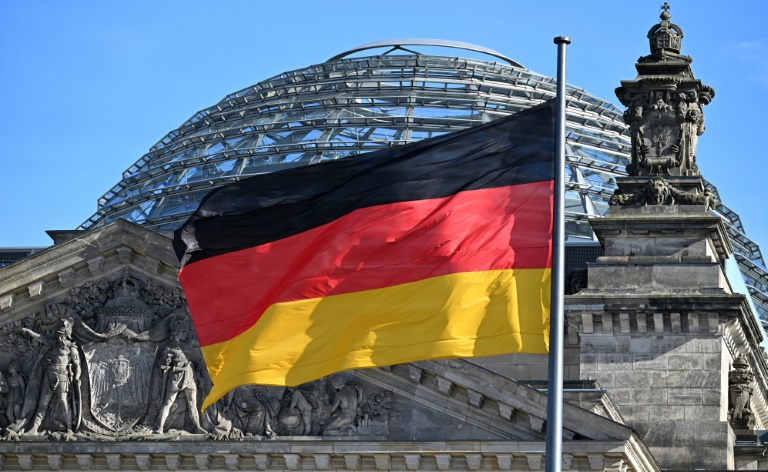Seattle (AFP) – Striking workers at Boeing approved a new contract proposal late Monday, ending a more than seven-week stoppage that had cost the beleaguered aviation giant billions. The International Association of Machinists and Aerospace Workers (IAM) District 751 said it had ratified the contract by a vote of 59 percent after rejecting two prior offers. The move will send some 33,000 Seattle-area employees back to work and restore operations at two major assembly plants after what became the costliest strike this century, at a time when Boeing is trying to recover from multiple setbacks.
The contract includes a 38 percent wage hike, a $12,000 signing bonus and provisions to lift employer contributions to a 401K retirement plan and contain health care costs. However, it does not restore Boeing’s former pension plan that had been sought by older workers. Jon Holden, head of the Seattle union, described the agreement as a win for workers who were determined to make up for more than a decade of stagnant wages. “It’s time for us to come together. This is a victory,” Holden said. “The strike will end and now it’s our job to get back to work and start building the airplanes, increase the rates and bring this company back to financial success.” Holden called the struggle to restore the pensions a “righteous fight,” adding, “we’ll continue working on that issue, retirement security, for the rest of our lives.”
Boeing CEO Kelly Ortberg welcomed the ratification, adding that management and workers must work together as “part of the same team” to return to “the excellence that made Boeing an iconic company.” The news was also cheered by President Joe Biden, who congratulated the union on gains that show “collective bargaining works.” Boeing staff can return as soon as November 6 and must be back on the job by November 12, the IAM said on social media platform X.
The strike had exacerbated Boeing’s already precarious outlook after a January incident in which a fuselage panel blew out mid-flight on a 737 MAX operated by Alaska Airlines. There were no major injuries, but the episode plunged Boeing back into crisis after two earlier fatal MAX crashes, with US air safety regulators limiting production output until the company shows it has gotten its house in order. In March, Boeing announced a management shakeup that included the exit of CEO Dave Calhoun, who was replaced in August by former Rockwell Collins chief Ortberg. But as the strike dragged on, the stoppage threatened Ortberg’s turnaround efforts. Both sides credited acting US Labor Secretary Julie Su with opening a window to negotiate when talks broke down.
Su traveled to Seattle in mid-October, leading to a second Boeing contract offer that was ultimately rejected by workers on October 23. She returned to Seattle on October 28 and hosted both parties at the Labor Department’s offices in Seattle, paving the way to the current deal, according to a Department of Labor official. “These negotiations can be tense,” the DOL official said. “The Acting Secretary says she has found it helpful for someone outside of the situation to come in and illuminate the best option for both the workers and the employer.”
Now that the strike is resolved, Ortberg has an opportunity to reboot relations with Boeing workers, said Andrea Schneider, a professor specializing in conflict resolution at Cardozo Law School in New York. “When you are new, you can build something new,” said Schneider, who recommended that Ortberg make himself a visible presence on the Boeing factory floor and reach out to workers. Third Bridge analyst Peter McNally said the end of the strike was a positive, but that Boeing’s “road ahead is long and complex.”
With the strike over, Boeing has gotten past two major overhangs following last week’s successful push to raise more than $20 billion in capital, said a note from UBS. The focus now shifts to Boeing’s prospects for lifting commercial plane production, which rests in part on shoring up the supply chain, UBS said. The strike recently surpassed the 2023 United Auto Workers strike against Detroit carmakers to become the costliest in the 21st century, according to Anderson Economic Group, which estimated the total economic hit at $11.6 billion. Shares of Boeing fell 2.6 percent in morning trading.
© 2024 AFP

